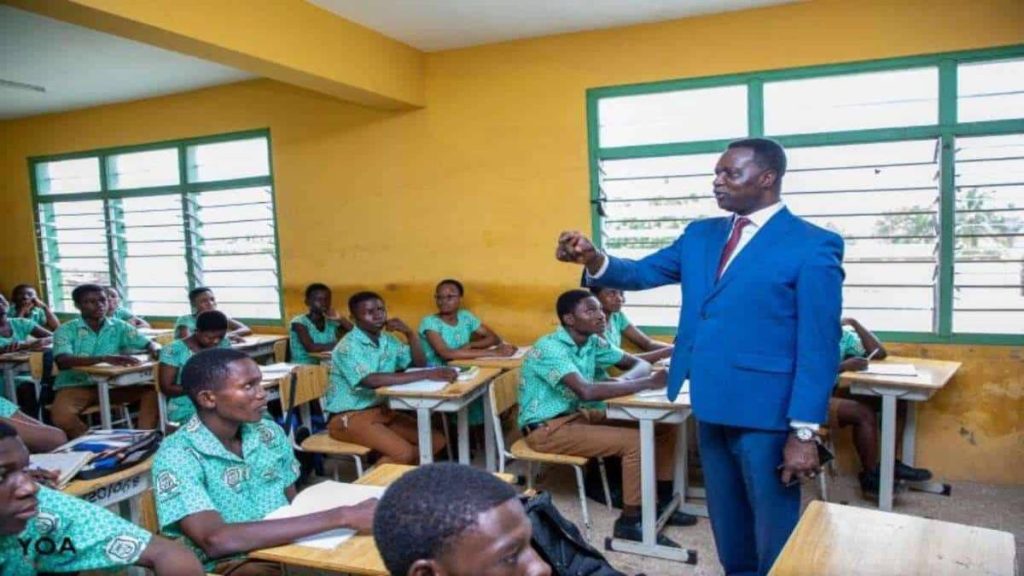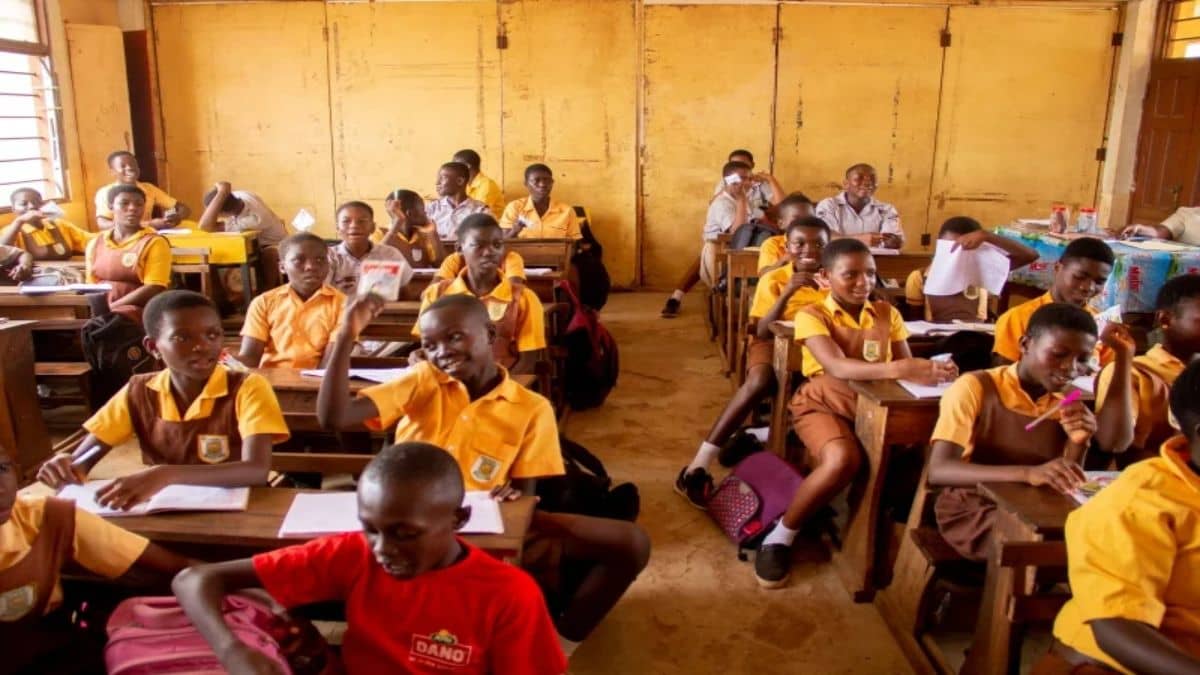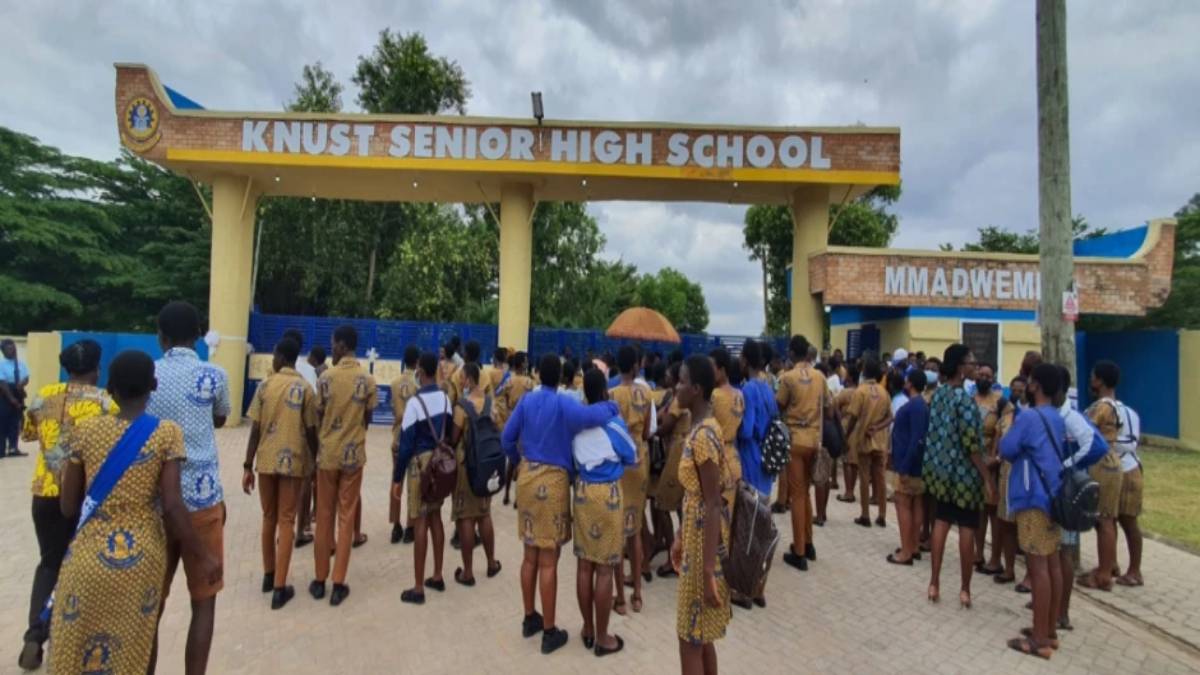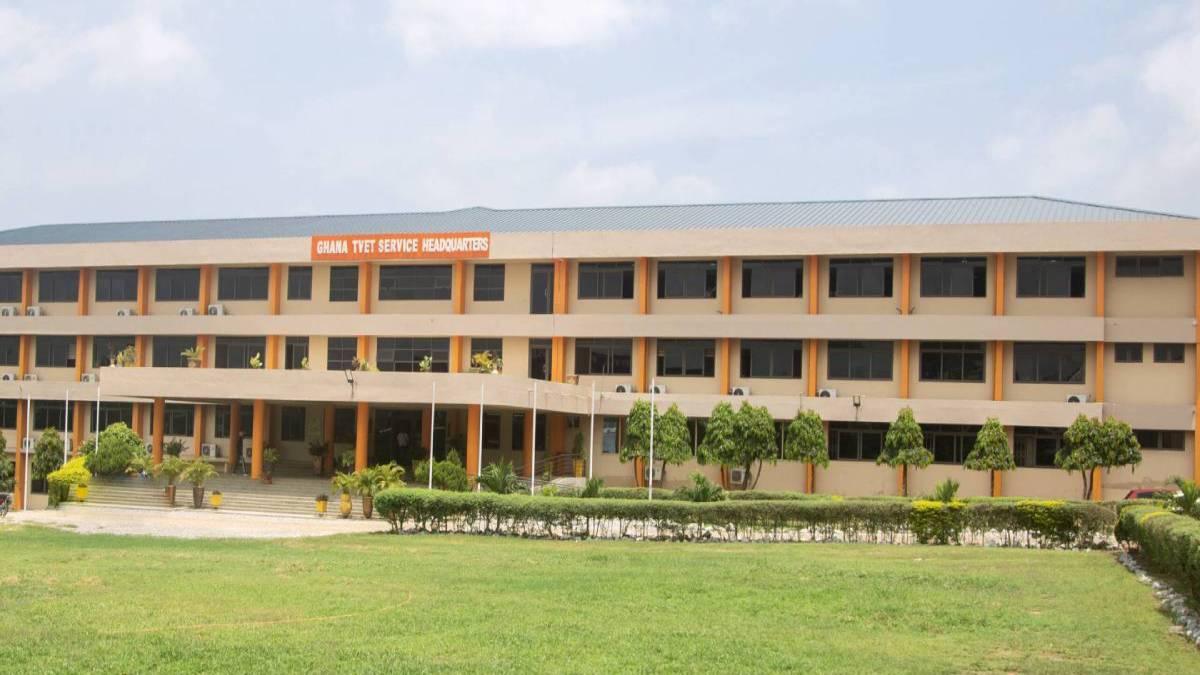Ex-GES DG refutes MoE’s claim double-track ruined SHS education

A former Deputy Director-General of the Ghana Education Service (GES), Dr. Kwabena Bempah Tandoh, has dismissed Minister for Education, Haruna Iddrisu’s claim that the double-track system undermined the quality of second-cycle school education.
His comment comes after the Minister for Education asserted that the double-track system introduced in 2018 has hurt the quality and outcomes of education across Senior High Schools (SHSs) in Ghana.
Speaking at a media briefing, Mr. Iddrisu described the policy, which was introduced to manage overcrowding in SHSs, as a temporary solution that has compromised effective teaching and learning.
The Minister for Education said the central government is working to phase out the double-track system in Senior High Schools (SHSs) through major investments in infrastructure, enhanced digital learning support,
“The double-track system has impacted negatively on the quality and outcomes of education under the Free SHS policy. Students have fewer contact hours and less study time, which affects their performance.
But in an article responding to the Education Minister’s claim, Dr. Kwabena Tandoh stated that far from lowering standards, the policy was a “masterstroke of policy” that not only expanded access but also significantly improved learning outcomes.
“The fear that reduced classroom time would lead to a decline in quality crumbles in the face of hard data,” the former Deputy Director-General of the Ghana Education Service in Charge of Quality and Access argued.
“An analysis of WASSCE results from 2015 to 2024 reveals that the period under the Free Senior High School and Double-Track system represents the best performance in Ghana’s WASSCE history,” he added.
He pointed to WAEC statistics showing that from 2020 onwards, pass rates for all four core subjects consistently stayed above 50%, with Mathematics results climbing from the 30s in earlier years to above 60%.
The immediate past GES Director further highlighted that Ghanaian students topped the WAEC Excellence Awards across West Africa over the past five years — proof that quality had not been compromised.
He recalled that the Double-Track policy, introduced in 2018 under then-Education Minister Dr. Matthew Opoku Prempeh, was a pragmatic response to the overwhelming demand that followed the launch of Free SHS.
“With over 180,000 qualified students at risk of being denied access due to infrastructure limitations, the system allowed schools to maximize existing facilities while the government ramped up construction. It was an essential bridge, not a setback,” he said.
The double-track system is an academic calendar model that divides senior high school (SHS) students and staff into two groups (tracks) to manage increased enrollment and overcrowding, with one group attending school while the other is on vacation, and vice versa.
Introduced in Ghana as part of the Free Senior High School policy in 2018, the system aimed to provide broader access to education, but it faced criticism for reducing instructional time, straining resources, and creating issues with academic scheduling.
While it successfully absorbed more students, challenges persist, and the government has been working to transition schools back to a single-track system by providing more infrastructure and revising the curriculum



